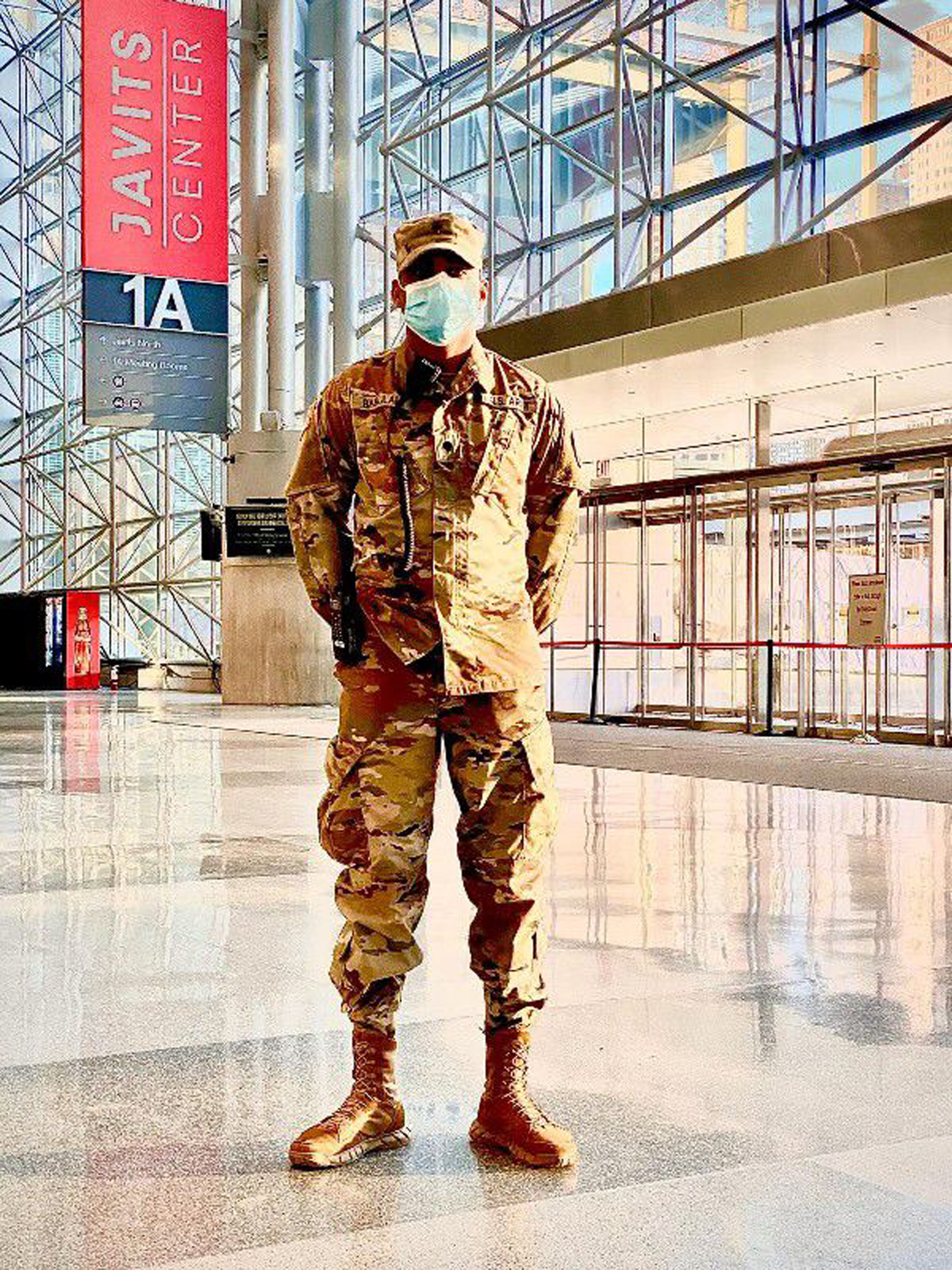(Trinidad Express) Trinidad-born Ricardo Babulal, who was tested positive for Covid-19 in New York, was determined to survive and not leave his loved ones behind, especially his elderly father.
The public school teacher in New York City shared his story with the Express, hoping it will inspire Trinidad and Tobago nationals to take precautions against Covid-19.
Babulal, who emigrated to the United States two decades ago, began a mission five years ago to give back to his native land, helping flood victims and other needy families across the country. In 2017, Babulal opened up his family’s home in Debe to families displaced by severe flooding.
He said: “My capacity as a NYC public teacher took a turning point on March 18 when the Mayor Bill De Blasio announced that from Monday March 19 all NYC public schools will be closed indefinitely. As teachers, we had to report for three days that week (without students) to be trained on how to move our classes online. The week after (March 23) we were up and working from home,” he said.
Babulal, 34, is also a member of the New York Army National Guard.
And, he said, it was only a matter of time for him to be called into active duty.
He said on March 27, his platoon sergeant called and instructed him to pack and show up for duty the next morning, March 28.
“We were then briefed about our duties, as a military police officer, we were being assigned to the New York Javits Center to facilitate security on premises as it was recently converted to a temporary hospital for COVID-19 patients,” he said.
State of shock
Babulal said he had worked a 24-hour shift on April 6 and began feeling body pains. He had a high fever and was immediately placed in quarantine.
“I told my team leader and then had my temperature taken. I had a fever of over 100.8 F. I was placed on quarantine from that very night in the hotel where we had been staying. I was then seen daily by the military medics as they began to monitor my symptoms,” he said.
Five days later, Babulal said he was tested positive for Covid-19.
“I was fearful and in a state of shock. I followed all guidelines and took precautions whenever I was public,” he said.
Babulal thought about his father, a retired doubles vendor living in Debe, and of never being reunited with his family in Trinidad and not being able to continue his mission to assist poverty-stricken families in his homeland.
He said he was not ready to give up and he fought every day to recover.
The fever would spike at nights, he said, and the body aches were prolonged. Babulal said he lost his sense of smell and taste. And he experienced shortness of breath which triggered fear.
“The most scary was my headaches and dizziness. At times I cooked my own meals and had to hold on to the kitchen counter, fearful of misbalancing, or sit down. I also had some muscle spasms from time to time,” he said.
A time for prayer
The medics would visit daily and continued to monitor his symptoms, which were slowly returning to normal.
“The US military is amazing; they would call me twice a day, provide emotional support if needed. Generals and higher-ups would call to check up and ask if there’s anything that I needed. I would have meals provided three times a day, and my team sergeant (who is also Trinidadian) would bring me his home-cooked meals from time to time,” he said.
And he would pray for the strength to continue to fight the deadly virus.
“My symptoms gradually subsided and I was eventually cleared by the medics. I was asked if I would like to continue the mission (work) or go home. I said I will continue with our mission because I wanted to continue serving. On Wednesday, April 29th, I returned to duty at the Javits Center,” he said.
Babulal said he was looking forward to returning to Trinidad when he will host a prayer service with his loved ones.
He was among hundreds of Trinidad and Tobago nationals who were infected by Covid-19 in New York in recent months. At least 15 Trinidadians have died.
As of yesterday, the New York City health department had reported 171,723 confirmed cases of Covid-19, with 13,724 deaths.

